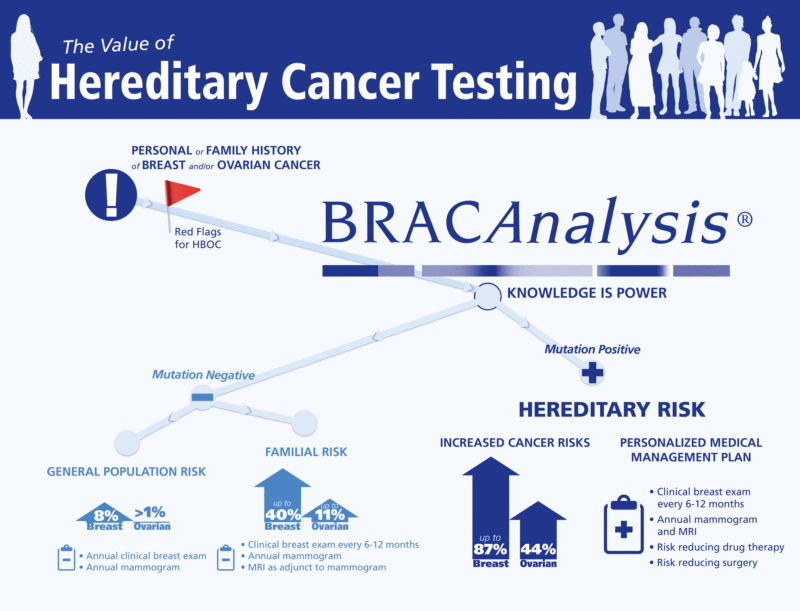Mutations in the BRCA1 and BRCA2 genes increase the risk of breast and ovarian cancers, and women with close relatives who have had those cancers are considered at higher risk of having BRCA mutations themselves. Both the National Cancer Institute and the United States Preventative Task Force recommend that those patients talk to a genetic counselor about whether or not to get the BRCA test.
But the study that surveyed newly diagnosed breast cancer patients found that while 80.9 percent of high-risk patients wanted genetic testing, only 39.6 percent had had a counseling session, and 50.9 percent had a genetic test. The test results could help guide treatment, as well as future efforts to prevent more cancer but, evidently, it just isn’t yet a ‘part of protocol’.
When questioned why they didn’t get tested, the majority of the 773 high-risk patients said it was because their doctor didn’t recommend it to them. Just 13.7 percent of them said the test was too expensive, and 10.7 percent said they didn’t want it. The researchers say this may suggest a disconnect between oncologist and patient, whether it be assessing BRCA risk isn’t on the physician’s radar, or that they just don’t find it important. The study surveyed 2,529 women overall.
Other genetic testing of cancer patients seems to be omitted as well. Genetic defects in metabolic pathways and detoxification pathways may not only lead to an increased risk of cancer but may hinder healing. Knowledge of such defects may greatly help guide treatment regimes.
“Those numbers (of lack of genetic testing) were really striking to us,” says Allison Kurian, an associate professor of medicine and health research/policy at Stanford University, breast cancer doctor, and lead author on the study, which was recently published in JAMA, the journal of the American Medical Association. “This really emphasizes the importance of cancer doctors in this process, and that patients get evaluated and tested the way they should be.”
Numerous tests exist to check for defects in cancer suppressor genes, photo-oncogenes, and other genes addressing the plethora of bodily functions that address health but we typically recommend beginning with the 23andme test. Read more about this test under our genetic tab on www.connersclinic.com.
NOTE: All of the above statements have not been evaluated by the Food and Drug Administration. This product is not intended to diagnose, treat, cure, or prevent any disease.
Dr. Conners graduated with his doctorate from Northwestern Health Sciences University in 1986. He holds AMA Fellowships in Regenerative & Functional Medicine and Integrative Cancer Therapy.
He is the author of numerous books including, Stop Fighting Cancer and Start Treating the Cause, Cancer Can’t Kill You if You’re Already Dead, Help, My Body is Killing Me, Chronic Lyme, 3 Phases of Lyme, 23 Steps to Freedom, and many more you can download for FREE on our books page.





 In this Brand New 3rd Edition Dr. Kevin Conners adds almost DOUBLE the content with all new insights and practical tips on how to understand your body’s ability to heal and get back to a state of health.
In this Brand New 3rd Edition Dr. Kevin Conners adds almost DOUBLE the content with all new insights and practical tips on how to understand your body’s ability to heal and get back to a state of health.